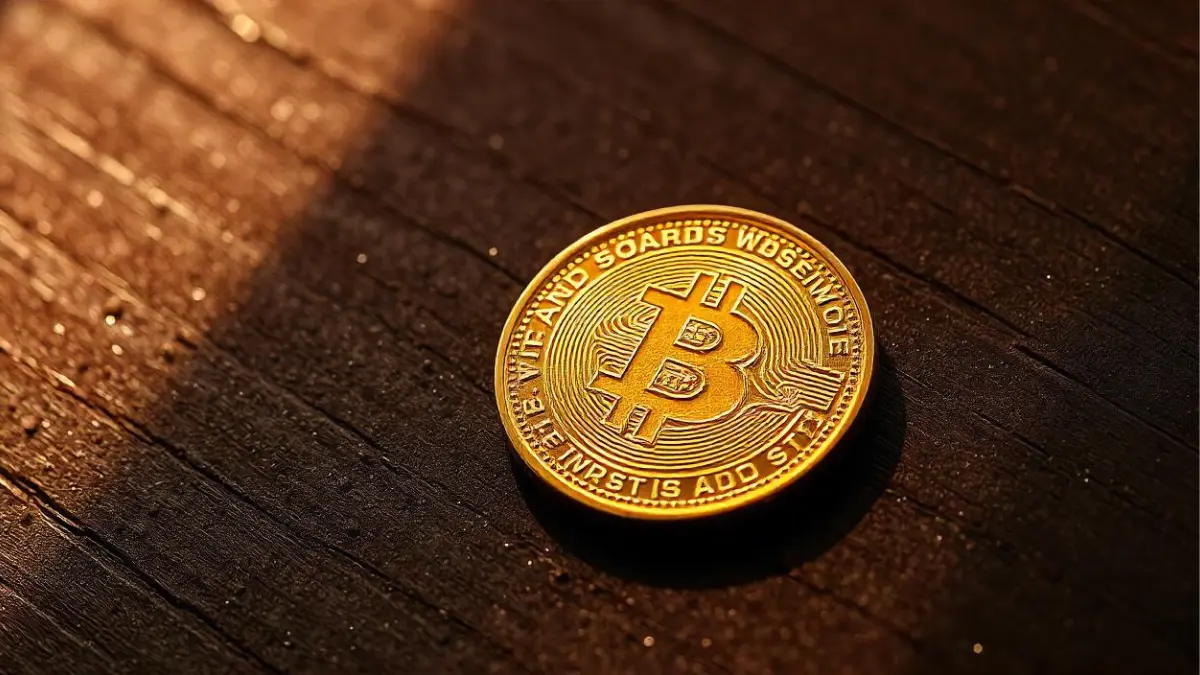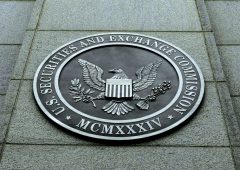Trump Administration Weighs Using Tariffs to Build U.S. Bitcoin Reserve
15.04.2025 20:00 2 min. read Alexander Stefanov
The Trump administration is exploring the idea of leveraging tariff revenues to build a national Bitcoin reserve, signaling a broader shift in how digital assets could be integrated into U.S. economic policy.
Bo Hines, who leads the Presidential Council of Advisers on Digital Assets, recently outlined the concept in public interviews, suggesting that the U.S. needs to accelerate its Bitcoin strategy amid intensifying global competition.
Unlike earlier proposals to fund such reserves by selling portions of federal gold holdings, this approach would rely on alternative revenue streams—specifically tariffs—to create a Strategic Bitcoin Reserve without adding pressure to the federal budget. Hines emphasized the urgency of the move, noting the limited supply of Bitcoin and the likelihood of a global accumulation race.
In discussions with Anthony Pompliano and other media outlets, Hines linked tariffs, Bitcoin, and gold as key parts of a larger vision aimed at economic resilience. He framed the Bitcoin reserve as only the starting point in a broader long-term plan to equip the U.S. economy with assets that can endure financial volatility and geopolitical shocks.
While some policymakers like Senator Cynthia Lummis have proposed increasing national Bitcoin holdings through gold divestments, the idea of using tariff funds marks a novel turn. Industry figures such as Crypto Rover welcomed the proposal as a bullish signal, but not everyone is convinced. Cardano’s Charles Hoskinson voiced skepticism, warning that tariffs may not be the most effective route, and suggested that taxing crypto could present challenges down the road.
Other critics pointed to potential drawbacks for U.S. Bitcoin miners. If tariffs on imported mining equipment increase, the domestic mining industry—already reliant on affordable hardware—could take a hit.
Still, the administration appears to be charting a multi-layered strategy. Hines hinted at upcoming initiatives involving stablecoins and blockchain integration within traditional banking systems. He also emphasized the potential benefits of blockchain for law enforcement and regulatory oversight.
Amid ongoing inflation concerns, rising tensions with China, and speculation about a leadership shake-up at the Federal Reserve, these developments suggest a stronger pivot toward crypto within U.S. policy circles. The idea of Bitcoin as a national asset—once viewed as fringe—is now being discussed in the context of long-term economic security.
-
1
Has BTC Topped? Key Signals Suggest The Rally isn’t Over
15.07.2025 21:00 2 min. read -
2
Over $5.8 Billion in Ethereum and Bitcoin Options Expired Today: What to Expect?
18.07.2025 16:00 2 min. read -
3
Analysis Firm Explains Why Bitcoin’s Breakout Looks Different This Time
11.07.2025 15:15 2 min. read -
4
Bitcoin Outlook: Rising U.S. Debt and Subdued Euphoria Suggest More Upside Ahead
11.07.2025 18:30 1 min. read -
5
Bitcoin Sparks Clash Between Mike Novogratz and Peter Schiff
13.07.2025 10:00 1 min. read
Bitcoin Breakouts Linked to Low-Risk Fed Periods
FOMC meetings may trigger market volatility, but they also mark key turning points in broader macro cycles.
Accumulation or Exit? Bitcoin Whale Activity Sends Mixed Signals
Fresh on-chain data shows that Bitcoin whales are ramping up activity, both in long-term accumulation and high-value transfers, signaling potential market preparation ahead of the next major price move.
Here is How Much Bitcoin Should Cost to Surpass Amazon, Apple, and Gold
As Bitcoin continues its steady ascent in 2025, comparisons with the world’s largest assets are once again gaining traction.
Bitcoin Stalls Below $120K as Markets Signal Late-Cycle Fatigue, Says QCP Capital
Bitcoin is treading water near the $120,000 resistance, with persistent bids around $116,000 offering a firm base—but failing to ignite fresh upside momentum.
-
1
Has BTC Topped? Key Signals Suggest The Rally isn’t Over
15.07.2025 21:00 2 min. read -
2
Over $5.8 Billion in Ethereum and Bitcoin Options Expired Today: What to Expect?
18.07.2025 16:00 2 min. read -
3
Analysis Firm Explains Why Bitcoin’s Breakout Looks Different This Time
11.07.2025 15:15 2 min. read -
4
Bitcoin Outlook: Rising U.S. Debt and Subdued Euphoria Suggest More Upside Ahead
11.07.2025 18:30 1 min. read -
5
Bitcoin Sparks Clash Between Mike Novogratz and Peter Schiff
13.07.2025 10:00 1 min. read


